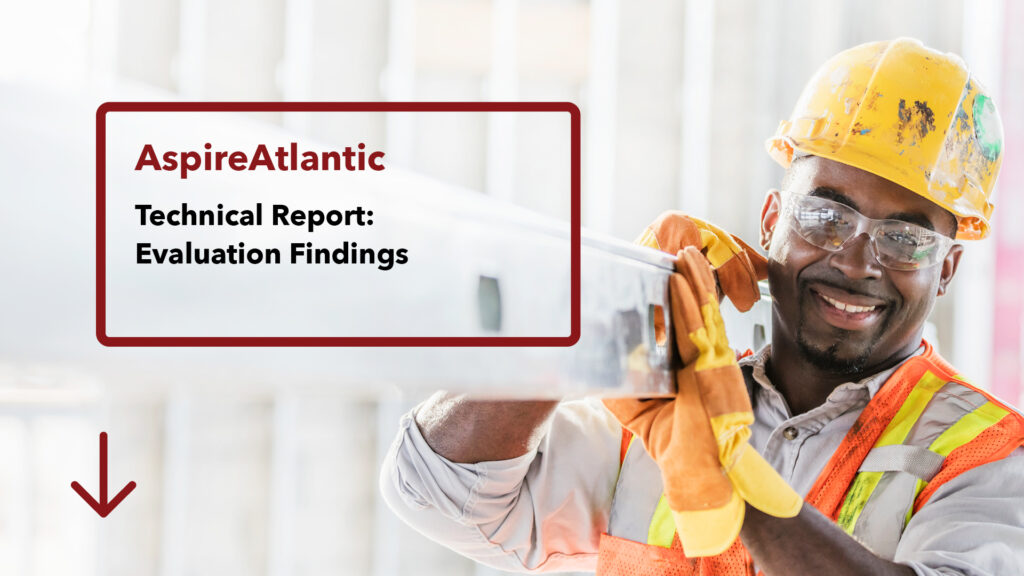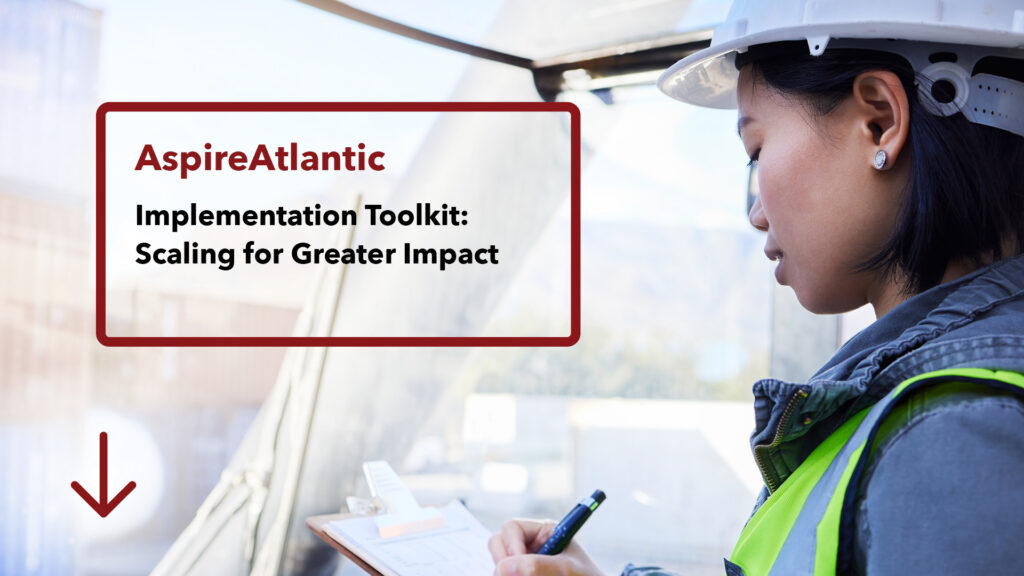About the Project
Atlantic Canada has long experienced hardships in the labour market compared to the rest of the country. The work to recruit, retain, and train more people in the skilled trades is critical to how we’ll tackle the challenges facing housing, healthcare, and infrastructure in the region.
AspireAtlantic is a demonstration study that implemented and tested an evidence-based employment services model in Nova Scotia and PEI.

THE WORKADVANCE MODEL
Project Design
AspireAtlantic is based on WorkAdvance—a model designed to help unemployed and underemployed workers connect to higher-quality jobs in high-growth sectors. It was developed using research and was tested in three U.S. cities, demonstrating positive economic outcomes for participants.
The primary goal of WorkAdvance is to move unemployed and underemployed working populations into sectors that offer better pay, benefits, and advancement opportunities.

THE INGREDIENTS
The WorkAdvance Model has five core components:
- Intensive screening of participants to ensure they are set up for success.
- Pre-employment and career readiness services to make participants employment ready.
- Occupational skills training to develop sector-specific skills for in-demand jobs in high-growth sectors.
- Job development and placement services to match participants with jobs in targeted sectors.
- Retention and advancement services to help participants increase employment attachment and career advancement opportunities.

Diagram adapted from the WorkAdvance Logic Model
MDRC. (2016). Encouraging evidence on a sector-focused advancement strategy: Two-year impacts from the WorkAdvance demonstration.
PROJECT PHASES
The Demonstration Study
AspireAtlantic was divided into two main phases:
1) Design Phase
The Design Phase was a pre-implementation phase focused on gathering existing and new contextual information and working with key groups including Service Provider Organizations (SPOs), sectoral representatives, and unemployed or underemployed individuals in Nova Scotia and Prince Edward Island. These varies insights helped inform the adaptation of the WorkAdvance model.
The main goal of these activities is to optimize the model for the best chance of success in the Atlantic Canadian context. This phase ended with an implementation plan and a group of partners who are committed to moving forward with Pier Labs into the next phase. This included the submission of a proposal for the second stage of funding.
2) Study Phase
The Study Phase used a rigorous research design, such as a Randomized Controlled Trial, to test whether the adapted model is effective or provides value over and above existing employment services in Nova Scotia and PEI.
Questions we aim to answer through this study are:
- How effective is the adapted WorkAdvance model in moving unemployed and underemployed individuals into higher-quality jobs with higher pay, benefits, and/or advancement opportunities?
- What kind of impact does this type of employment program have on other aspects of quality of life for low- income individuals and their broader household?
- What kind of impacts does it have for employers?
PROJECT PUBLICATIONS
Findings & Implementation Toolkit
We are thrilled to share the final reports from the AspireAtlantic project. The Technical Report summarizes research and evaluation findings and the Implementation Toolkit is designed to support sectors and regions who need of skilled labour in implementing and scaling the model swiftly and effectively:
PEOPLE
Project Team

Jocelyn Brown
Research Lead

Diana Parks
Program Director

Jennifer McGill
Project Manager
AspireAtlantic was funded by the Government of Canada’s Future Skills Centre and the Nova Scotia Department of Labour, Skills, and Immigration


Contact the Team
Interested in learning more about our services?


